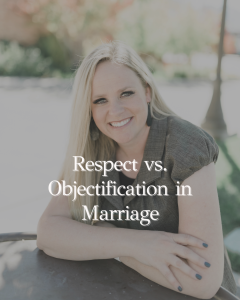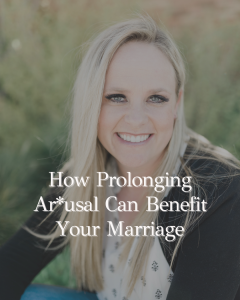
Healthy boundaries promote self-responsibility and empowerment. And while we may be afraid that boundaries separate us from others, they really do quite the opposite. They lead us to closer relationships with others. In this podcast, learn what a healthy boundary looks like and when to set one.
Show Notes:
Follow Amanda on Facebook and Instagram.
Join Amanda’s Private Facebook Group.
References for this episode:
Show Summary:
What is a Boundary?
What is a boundary: A boundary is stating what YOU will do if a person continues a behavior that invades your physical or emotional space.
For example, a physical boundary may be that someone has hit you or continues to come over to your house uninvited. An emotional boundary would be if someone is yelling or screaming at you.
So to set a boundary it’s a very matter of fact statement “If you do this, I will do that”
So it includes a request you make of someone to change their behavior and a consequence of what you will to self protect if they violate that boundary again.
For example: If someone hits you might say “If you hit me again, I will leave the house and call the police.” An emotional boundary is “If you continue to scream at me then I will leave the house until you calm down.”
Healthy boundaries promote self-responsibility and empowerment. And while we may be afraid that boundaries separate us from others, they really do quite the opposite. They lead us to closer relationships with others.
When and How to set a Boundary
Before you set a boundary, you need to be clear to yourself what your boundaries are. You might have some pretty clear ones (like someone hitting you) but most people aren’t as clear around their emotional boundaries.
Do you allow people to yell at you?
Do you allow people to speak disrespectfully to you?
Do you allow people to demean you or put you down?
You need to figure that out and get really clear.
Boundaries only need to be communicated when they have been violated. Most of us have a boundary that we won’t let someone hit us. But we don’t walk around saying “by the way, if you hit me I’ll call the police”
Once the boundary has been violated, we need to communicate to the person that they have crossed a boundary and clearly state the consequences if they don’t stop.
Boundaries are meant to protect you, so you need to clearly communicate when a violation has occurred. You make the request, give them the option to whatever they would like to do, and then you follow through.
A boundary doesn’t have to be dramatic. They should not be used as a thread or ultimatum They are a firm response to action. If you are angry, frustrated, and mad, then you’ll want to work through those emotions before you set a boundary. Get to a place of peace and love BEFORE you set your boundary. If you aren’t there, then it’s not an ideal time to set a boundary. If you are trying to manipulate their behavior for your own benefit, you are not in the right headspace to set a boundary.
Why do we set boundaries?
Boundaries create more love and less resentment in our lives.
Elizabeth Gilbert says “We have an obligation to love everybody in the world, but some people we must love from a safe distance.”
We do not set boundaries out of hurt, anger or fear. We don’t set boundaries to punish someone. We set boundaries out of love. Love for yourself and love for the other person (or at least out of respect). “Because I value our relationship and I respect you…..”
A boundary is not an ultimatum. It’s not a way of controlling another person so that we can feel better. That never works. People don’t like being controlled or feel forced.
Boundaries vs. The Manual
A lot of my clients and others get confused between what is a boundary issues and what is a Manual issue.
In both cases, you are making a request of someone but remember that a boundary is a physical or emotional violation.
Something like “I would like my husband to do take out the trash, be more romantic, give me more compliments” is a manual issue.
If your husband is being physically abusive or abusive in another way, that would be a boundary issue. I will actually be addressing abuse in next week’s episode.
Always remember that the other person gets to choose how they want to act. So you’ll need to be prepared to follow through with the consequences. Enforce it from a place of peace and love. Not anger, frustration, or resentment. The consequence of your boundary should be a natural consequence to protect yourself (not a punishment).
The challenges of setting boundaries
So why don’t we set boundaries? Most of the time it’s because we are afraid of losing the relationship. We are afraid that if we take care of ourselves and tell the truth, the truth might make the other person angry. So in order to avoid the other person “losing control” we stay in relationships that are base on lies, pretenses, and resentment. This prevents any true intimacy in the relationship.
Having a conversation about the boundary can be uncomfortable and challenging. But honoring yourself and what is authentic and true along with the willingness to let other people interpret it how they will is difficult but worth it in the end.
People telling you how to live your life and criticizing you is NOT necessarily a boundary violation. If you don’t want to be around someone, you can say “if you keep doing that, I am going to leave” or you can just let them have their opinions and be wrong about me. If it gets to a point where its constant and emotionally draining, then set a boundary.
It is YOUR job to respect your own boundary. If you make a boundary request and don’t follow through, then its just an idol threat. It diminishes your own self respect and theirs for you.
Henry Cloud – who is the foremost expert on boundaries says in his book “We must love and honor ourselves enough to tell people in our lives the truth and set proper boundaries”
Discomfort comes when we tell them we don’t like, appreciate, or approve of their behavior.
Use words like…its not easy to hear, its not easy for me to do… it could impact our relationship. But because i love you and respect you and value our relationship. I want to have positive, loving, feelings towards you I need to tell you….
Boundaries aren’t just for us, its also for the sake of the person doing the violating. This person is often unaware that they are even causing you to feel what you are feeling.
And remember, they don’t have to agree with your boundary. They are allowed to act and feel however they want. But you are honoring yourself and loving yourself AND them when you tell them the truth without attacking or yelling at them. Your truth has nothing to do with them.
A boundary isn’t about controlling someone else’s behavior. It’s about you controlling yourself.
Setting our own boundaries
Henry Cloud – “Setting Boundaries on your own character weaknesses in one fo the most loving things you can do in your marriage.”
It’s important to recognize our own character weakness and set those boundaries for ourselves.
“If I feel myself getting heated, I will take a time out”
I have to do that a lot in situations with my husband and especially with my kids.
Sometimes we are the ones who have made a boundary violation. This can often trigger self-destructive thoughts like
“I’m such a bad person” and cause a lot of drama.
Remember, this person has taken the time to share their truth with you because they value the relationship. Use it as a way to self-reflect on how you can improve yourself.



